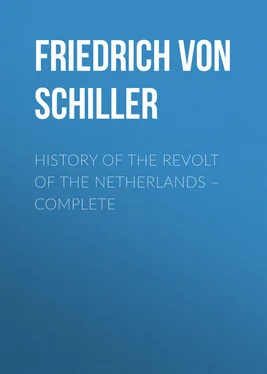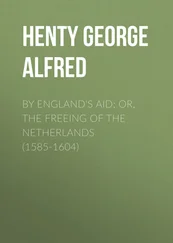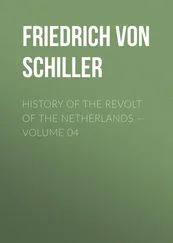Friedrich Schiller - History of the Revolt of the Netherlands – Complete
Здесь есть возможность читать онлайн «Friedrich Schiller - History of the Revolt of the Netherlands – Complete» — ознакомительный отрывок электронной книги совершенно бесплатно, а после прочтения отрывка купить полную версию. В некоторых случаях можно слушать аудио, скачать через торрент в формате fb2 и присутствует краткое содержание. Жанр: История, literature_18, foreign_antique, foreign_prose, на английском языке. Описание произведения, (предисловие) а так же отзывы посетителей доступны на портале библиотеки ЛибКат.
- Название:History of the Revolt of the Netherlands – Complete
- Автор:
- Жанр:
- Год:неизвестен
- ISBN:нет данных
- Рейтинг книги:3 / 5. Голосов: 1
-
Избранное:Добавить в избранное
- Отзывы:
-
Ваша оценка:
- 60
- 1
- 2
- 3
- 4
- 5
History of the Revolt of the Netherlands – Complete: краткое содержание, описание и аннотация
Предлагаем к чтению аннотацию, описание, краткое содержание или предисловие (зависит от того, что написал сам автор книги «History of the Revolt of the Netherlands – Complete»). Если вы не нашли необходимую информацию о книге — напишите в комментариях, мы постараемся отыскать её.
History of the Revolt of the Netherlands – Complete — читать онлайн ознакомительный отрывок
Ниже представлен текст книги, разбитый по страницам. Система сохранения места последней прочитанной страницы, позволяет с удобством читать онлайн бесплатно книгу «History of the Revolt of the Netherlands – Complete», без необходимости каждый раз заново искать на чём Вы остановились. Поставьте закладку, и сможете в любой момент перейти на страницу, на которой закончили чтение.
Интервал:
Закладка:
For this affluence the Netherlands were as much indebted to their liberty as to the natural advantages of their country. Uncertain laws and the despotic sway of a rapacious prince would quickly have blighted all the blessings which propitious nature had so abundantly lavished on them. The inviolable sanctity of the laws can alone secure to the citizen the fruits of his industry, and inspire him with that happy confidence which is the soul of all activity.
The genius of this people, developed by the spirit of commerce, and by the intercourse with so many nations, shone in useful inventions; in the lap of abundance and liberty all the noble arts were carefully cultivated and carried to perfection. From Italy, to which Cosmo de Medici had lately restored its golden age, painting, architecture, and the arts of carving and of engraving on copper, were transplanted into the Netherlands, where, in a new soil, they flourished with fresh vigor. The Flemish school, a daughter of the Italian, soon vied with its mother for the prize; and, in common with it, gave laws to the whole of Europe in the fine arts. The manufactures and arts, on which the Netherlanders principally founded their prosperity, and still partly base it, require no particular enumeration. The weaving of tapestry, oil painting, the art of painting on glass, even pocketwatches and sun-dials were, as Guicciardini asserts, originally invented in the Netherlands. To them we are indebted for the improvement of the compass, the points of which are still known by Flemish names. About the year 1430 the invention of typography is ascribed to Laurence Koster, of Haarlem; and whether or not he is entitled to this honorable distinction, certain it is that the Dutch were among the first to engraft this useful art among them; and fate ordained that a century later it should reward its country with liberty. The people of the Netherlands united with the most fertile genius for inventions a happy talent for improving the discoveries of others; there are probably few mechanical arts and manufactures which they did not either produce or at least carry to a higher degree of perfection.
Up to this time these provinces had formed the most enviable state in Europe. Not one of the Burgundian dukes had ventured to indulge a thought of overturning the constitution; it had remained sacred even to the daring spirit of Charles the Bold, while he was preparing fetters for foreign liberty. All these princes grew up with no higher hope than to be the heads of a republic, and none of their territories afforded them experience of a higher authority. Besides, these princes possessed nothing but what the Netherlands gave them; no armies but those which the nation sent into the field; no riches but what the estates granted to them. Now all was changed. The Netherlands had fallen to a master who had at his command other instruments and other resources, who could arm against them a foreign power.
[The unnatural union of two such different nations as the Belgians and Spaniards could not possibly be prosperous. I cannot here refrain from quoting the comparison which Grotius, in energeticlanguage, has drawn between the two. “With the neighboring nations,” says he, “the people of the Netherlands could easily maintain a good understanding, for they were of a similar origin with themselves, and had grown up in the same manner. But the people of Spain and of the Netherlands differed in almost every respect from one another, and therefore, when they were brought together clashed the more violently. Both had for many centuries been distinguished in war, only the latter had, in luxurious repose, become disused to arms, while the former had been inured towar in the Italian and African campaigns; the desire of gain made the Belgians more inclined to peace, but not less sensitive of offence. No people were more free from the lust of conquest, but none defended its own more zealously. Hence the numerous towns, closely pressed together in a confined tract of country; densely crowded with a foreign and native population; fortified near the sea and the great rivers. Hence for eight centuries after the northern immigration foreign arms could not prevail against them. Spain, on the contrary, often changed its masters; and when at last it fell into the hands of the Goths, its character and its manners had suffered more or less from each new conqueror. The people thus formed at last out of these several admixtures is described as patient in labor, imperturbable in danger, equally eager for riches and honor, proud of itself even to contempt of others, devout and grateful to strangers for any act of kindness, but also revengeful, and of such ungovernable passions in victory as so regard neither conscience nor honor in the case of an enemy. All this is foreign to the character of the Belgian, who is astute but not insidious, who, placed midway between France and Germany, combines in moderation the faults and good qualities of both. He is not easily to be imposed upon, nor is he to be insulted with impunity. In veneration for the Deity, too, he does not yield to the Spaniard; the arms of the Northmen could not make him apostatize from Christianity when he had once professed it. No opinion which the church condemns had, up to this time, empoisoned the purity of his faith. Nay, his pious extravagance went so far that it became requisite to curb by laws the rapacity of his clergy. In both people loyalty to their rulers is equally innate, with this difference, that the Belgian places the law above kings. Of all the Spaniards the Castilians require to be, governed with the most caution; but the liberties which they arrogate for themselves they do not willingly accord to others. Hence the difficult task to their common ruler, so to distribute his attention, and care between the two nations that neither the preference shown to the Castilian should offend the Belgian, nor the equal treatment of the Belgian affront the haughty spirit of the Castilian.”
– Grotii Annal. Belg. L. 1. 4. 5. seq.]Charles V. was an absolute monarch in his Spanish dominions; in the Netherlands he was no more than the first citizen. In the southern portion of his empire he might have learned contempt for the rights of individuals; here he was taught to respect them. The more he there tasted the pleasures of unlimited power, and the higher he raised his opinion of his own greatness, the more reluctant he must have felt to descend elsewhere to the ordinary level of humanity, and to tolerate any check upon his arbitrary authority. It requires, indeed, no ordinary degree of virtue to abstain from warring against the power which imposes a curb on our most cherished wishes.
The superior power of Charles awakened at the same time in the Netherlands that distrust which always accompanies inferiority. Never were they so alive to their constitutional rights, never so jealous of the royal prerogative, or more observant in their proceedings. Under, his reign we see the most violent outbreaks of republican spirit, and the pretensions of the people carried to an excess which nothing but the increasing encroachments of the royal power could in the least justify. A Sovereign will always regard the freedom of the citizen as an alienated fief, which he is bound to recover. To the citizen the authority of a sovereign is a torrent, which, by its inundation, threatens to sweep away his rights. The Belgians sought to protect themselves against the ocean by embankments, and against their princes by constitutional enactments. The whole history of the world is a perpetually recurring struggle between liberty and the lust of power and possession; as the history of nature is nothing but the contest of the elements and organic bodies for space. The Netherlands soon found to their cost that they had become but a province of a great monarchy. So long as their former masters had no higher aim than to promote their prosperity, their condition resembled the tranquil happiness of a secluded family, whose head is its ruler. Charles V. introduced them upon the arena of the political world. They now formed a member of that gigantic body which the ambition of an individual employed as his instrument. They ceased to have their own good for their aim; the centre of their existence was transported to the soul of their ruler. As his whole government was but one tissue of plans and manoeuvres to advance his power, so it was, above all things, necessary that he should be completely master of the various limbs of his mighty empire in order to move them effectually and suddenly. It was impossible, therefore, for him to embarrass himself with the tiresome mechanism of their interior political organization, or to extend to their peculiar privileges the conscientious respect which their republican jealousy demanded. It was expedient for him to facilitate the exercise of their powers by concentration and unity. The tribunal at Malines had been under his predecessor an independent court of judicature; he subjected its decrees to the revision of a royal council, which he established in Brussels, and which was the mere organ of his will. He introduced foreigners into the most vital functions of their constitution, and confided to them the most important offices. These men, whose only support was the royal favor, would be but bad guardians of privileges which, moreover, were little known to them. The ever-increasing expenses of his warlike government compelled him as steadily to augment his resources. In disregard of their most sacred privileges he imposed new and strange taxes on the provinces. To preserve their olden consideration the estates were forced to grant what he had been so modest as not to extort; the whole history of the government of this monarch in the Netherlands is almost one continued list of imposts demanded, refused, and finally accorded. Contrary to the constitution, he introduced foreign troops into their territories, directed the recruiting of his armies in the provinces, and involved them in wars, which could not advance even if they did not injure their interest, and to which they had not given their consent. He punished the offences of a free state as a monarch; and the terrible chastisement of Ghent announced to the other provinces the great change which their constitution had already undergone.
Читать дальшеИнтервал:
Закладка:
Похожие книги на «History of the Revolt of the Netherlands – Complete»
Представляем Вашему вниманию похожие книги на «History of the Revolt of the Netherlands – Complete» списком для выбора. Мы отобрали схожую по названию и смыслу литературу в надежде предоставить читателям больше вариантов отыскать новые, интересные, ещё непрочитанные произведения.
Обсуждение, отзывы о книге «History of the Revolt of the Netherlands – Complete» и просто собственные мнения читателей. Оставьте ваши комментарии, напишите, что Вы думаете о произведении, его смысле или главных героях. Укажите что конкретно понравилось, а что нет, и почему Вы так считаете.












